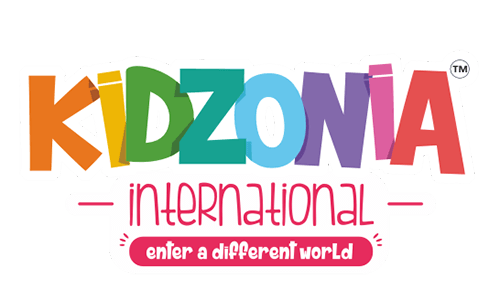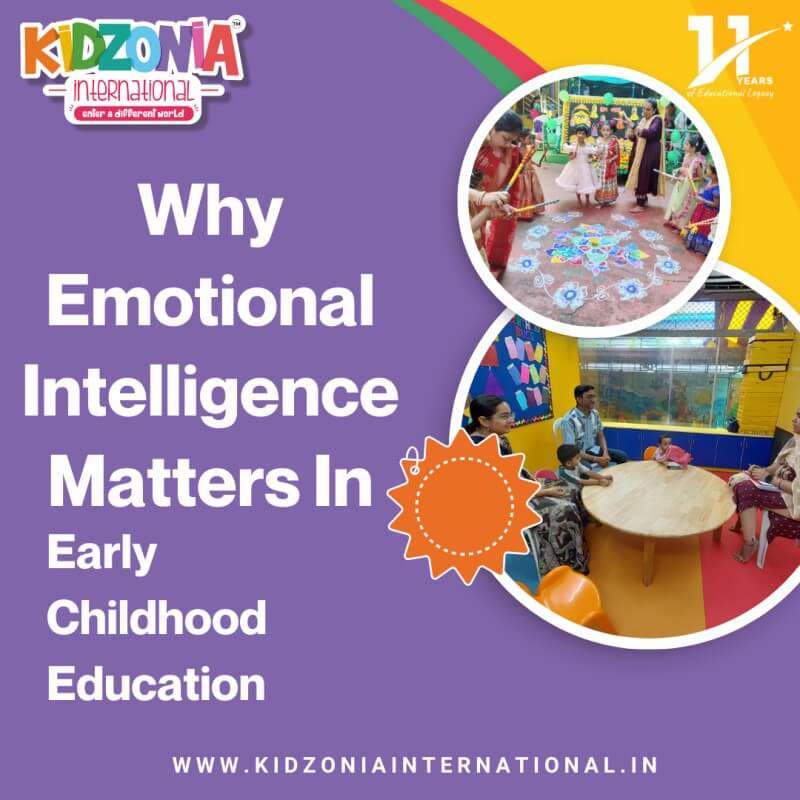The Significance of Emotional Intelligence in Early Childhood Learning
Emotional intelligence (EI) is a crucial skill set that goes beyond academic learning, especially in the formative years of early childhood. While traditional education focuses on cognitive development, such as learning numbers, letters, and shapes, emotional intelligence nurtures a child’s ability to understand and manage their emotions, empathize with others, and navigate social interactions. In early childhood education, fostering EI is not just a bonus; it’s a foundation for lifelong success. This article explores why emotional intelligence matters in early childhood education and how it shapes a child’s future in profound ways.
What Is Emotional Intelligence?
Emotional intelligence is the capacity to identify, comprehend, and regulate one's own emotions while also being sensitive to the feelings of those around them. It encompasses skills like self-awareness, self-regulation, empathy, and social competence. In the context of early childhood education, EI helps children identify their feelings, express them appropriately, and respond to the emotions of their peers and caregivers.
The Significance of Emotional Intelligence in Early Childhood Learning
1. Building Strong Social Skills
The early years of childhood play a vital role in social development. During this stage, children begin to understand how to engage with others, cooperate, take turns, and handle disagreements. Developing emotional intelligence provides them with essential skills to manage these interactions effectively. For example, a child who can recognize when a friend is upset and offer comfort is practicing empathy—a key component of EI. In a classroom setting, children with high EI are more likely to collaborate effectively, participate in group activities, and build positive relationships with both peers and teachers.
2. Enhancing Academic Performance
While it may seem unrelated, emotional intelligence has a direct impact on academic success. Children who can manage their emotions are better able to focus, follow instructions, and handle the frustrations that come with learning new skills. For instance, a child who can calmly approach a challenging puzzle rather than becoming overwhelmed is more likely to persist and succeed. Additionally, emotionally intelligent children tend to have better self-regulation, which helps them stay engaged during lessons and reduces disruptive behavior, creating a more conducive learning environment for everyone.
3. Promoting Mental Health and Well-Being
Young children start building their identity and emotional strength during early childhood.Teaching EI at this stage helps children understand that all emotions—whether joy, anger, or sadness—are normal and manageable. This reduces the risk of emotional suppression, which can lead to anxiety or behavioral issues later on. When children learn to express their emotions in a healthy manner, they develop a solid foundation for their mental well-being. They are less likely to develop stress-related problems and more likely to seek help when needed.
4. Fostering Empathy and Compassion
Empathy, the capacity to recognize and connect with the emotions of others, serves as a fundamental aspect of emotional intelligence. In early childhood education, activities like storytelling, role-playing, and group discussions can help children step into others’ shoes and appreciate different perspectives. For example, reading a story about a character who feels left out can prompt discussions about inclusion and kindness. These lessons in empathy not only make children more compassionate but also prepare them to thrive in diverse, multicultural environments.
5. Preparing for Future Success
Research shows that emotional intelligence is a stronger predictor of long-term success than IQ alone. Children who cultivate emotional intelligence from an early age tend to thrive in their careers, build strong relationships, and enjoy a more satisfying life. They are better equipped to handle stress, adapt to change, and collaborate with others—skills that are essential in today’s fast-paced, interconnected world. Moreover, emotionally intelligent individuals tend to have higher self-esteem and stronger leadership abilities, as they can navigate complex social dynamics with confidence and grace.
The Role of Early Childhood Education in Developing Emotional Intelligence
-
Emotion-Focused Activities: Teachers can incorporate activities like “emotion charades,” where children act out different feelings, or “feelings charts,” where they identify their emotions throughout the day.
-
Books and role-playing activities: that focus on emotions enable children to navigate different situations, such as offering comfort to a friend or handling feelings of anger.
-
Mindfulness and Relaxation Techniques: Simple breathing exercises or quiet reflection time can teach children how to calm themselves when they feel overwhelmed.
-
Positive Reinforcement: Praising children for showing empathy, sharing, or expressing their emotions appropriately reinforces these behaviors and encourages their development.
The Long-Term Impact of Emotional Intelligence
The benefits of emotional intelligence extend far beyond the preschool years. Children who cultivate emotional intelligence at an early age are more likely to:
-
Have better mental health and lower rates of anxiety or depression.
-
Strengthen and deepen your connections with family, friends, and colleagues.
-
Excel in leadership roles due to their ability to understand and motivate others.
-
Embrace change and tackle obstacles with strength and adaptability.
In essence, emotional intelligence is not just a “soft skill”—it’s a critical life skill that shapes how children interact with the world around them.
The Significance of Emotional Intelligence in Early Childhood Learning
At Kidzonia International Preschools, the curriculum is designed specifically for the children, incorporating the activities not only related to academics but also encouraging their emotional growth and well-being. The circle and activity time of the students includes activities such as Emoticon day celebrations, Emotion Charades, Story time with an Emotional Talk, Calm – Down Corners, Feelings Art, Role-plays and Collaborative games.
Such activities not only help in the increase of Emotional intelligence but also strive in building empathy, and the ability to recognize, understand, express, and manage emotions in oneself and in others.
Conclusion
Emotional intelligence is a vital component of early childhood education that deserves as much attention as academic learning. By teaching children to recognize and manage their emotions, empathize with others, and navigate social situations, we are setting them up for a lifetime of success. In today's world, where collaboration, flexibility, and mental strength are highly valued, emotional intelligence is not just beneficial—it’s indispensable.. Early childhood educators and parents alike have the opportunity to nurture this skill set, ensuring that children grow into well-rounded, compassionate, and capable individuals.





